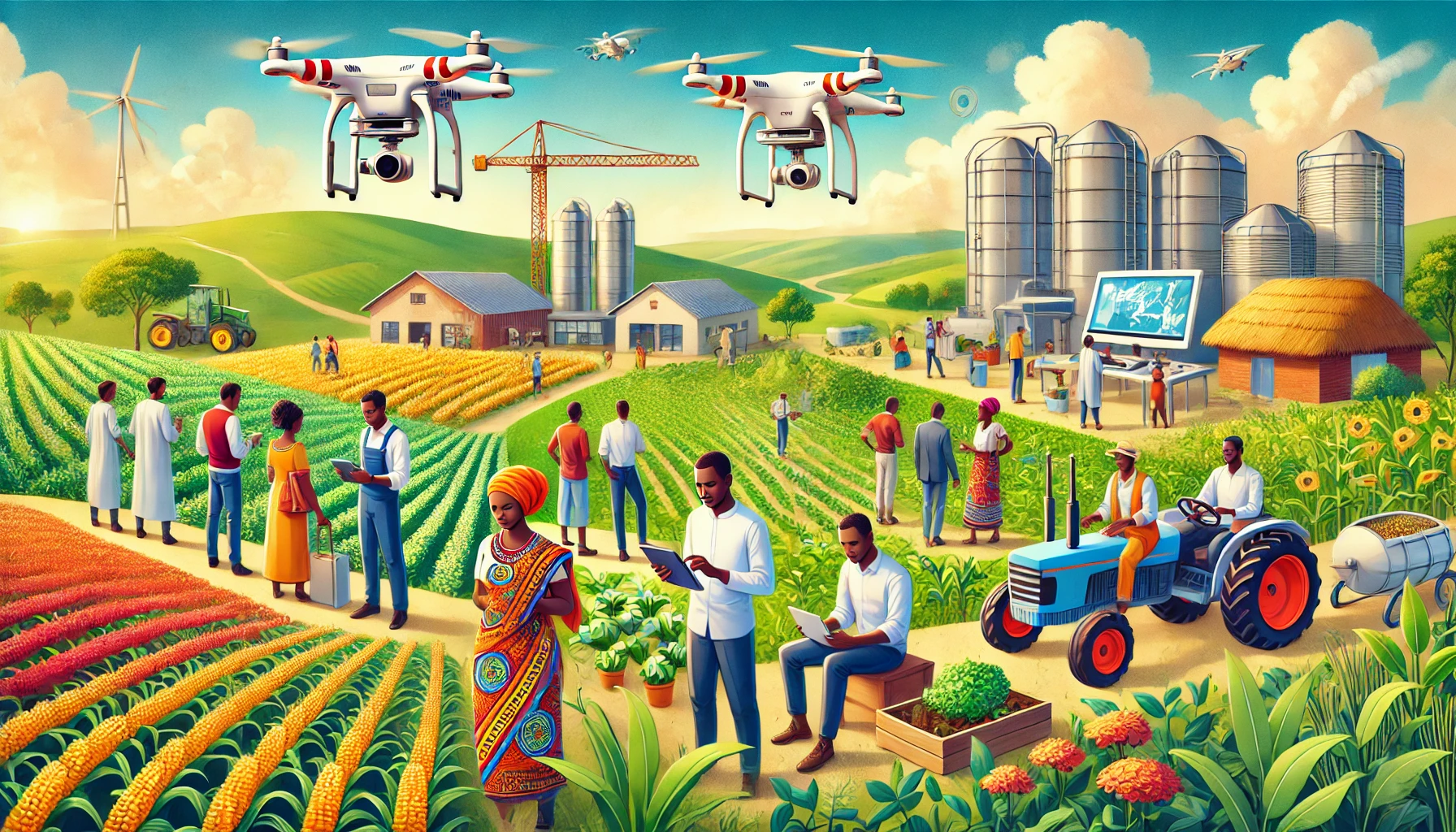African Innovation Takes Center Stage in Agrifood Transformation Drive
FAO’s Assistant Director-General and Regional Representative for Africa, Abebe Haile-Gabriel, opened the event with an urgent call to action. FAO’s Assistant Director-General and Regional Representative for Africa, Abebe Haile-Gabriel, opened the event with an urgent call to action.

- Country:
- Ghana
In a landmark event that spotlighted the central role of African-led innovation in addressing the continent’s agrifood challenges, the Food and Agriculture Organization of the United Nations (FAO), in partnership with the Government of the United Republic of Tanzania, hosted a pivotal side event during the Regional Policy Dialogue on Strengthening South-South and Triangular Cooperation (SSTC) in Africa. Held under the theme “Scaling Science and Innovation for Resilient Agrifood Systems: African Solutions through South-South and Triangular Cooperation,” the session united scientists, innovators, researchers, and policymakers to highlight and scale homegrown solutions that are transforming agriculture across Africa.
Science and Innovation: Catalysts for Agrifood Resilience
FAO’s Assistant Director-General and Regional Representative for Africa, Abebe Haile-Gabriel, opened the event with an urgent call to action. “Africa stands today at a defining moment,” he stated. He cited climate change, declining land and water resources, pest outbreaks, and high post-harvest losses as key stressors undermining productivity and farmer livelihoods.
However, amid these challenges, he celebrated a new generation of African scientists and innovators who are redefining agriculture through advanced technologies, better business models, and innovative knowledge-sharing mechanisms. He encouraged governments to scale these practices by aligning national policies and investing in research and development.
Tapping Into Homegrown Scientific Potential
Delivering the keynote address, Professor Anthony Egeru of the Regional Universities Forum for Capacity Building in Agriculture (RUFORUM) emphasized Africa’s underutilized scientific capabilities. He noted that intra-African collaboration in research and innovation remains limited and called for greater investment in inter-university partnerships and research networks to reduce the continent’s food import burden, which currently exceeds US$50 billion annually.
Egeru stressed the need to empower young researchers and create opportunities for localized research that responds to African ecological, cultural, and economic realities.
Showcasing Scalable Innovations
The session featured two expert panels showcasing scalable, impact-driven innovations:
-
Panel One: Focused on farmer-centered technologies already making measurable impacts. Among them was Innovative Solutions for Decision Agriculture (ISDA), a pan-African agtech company that is pioneering the use of artificial intelligence to support smallholder farmers. Their Virtual Agronomist, a WhatsApp-based AI chatbot, offers farmers real-time, customized advice on soil fertility and fertiliser application. Impressively, users have seen yield improvements of up to 60%. The company’s goal is to reach 10 million farmers across Africa within five years, a testament to the potential of digital tools to bridge knowledge gaps in rural areas.
-
Panel Two: Explored how science-policy linkages can create enabling environments for innovation uptake. Experts stressed the importance of policies that incentivize technology adoption, enhance research funding, and support the commercialization of African-led innovations.
Innovations in Pest Surveillance and Youth-led Agribusiness
The FAO presented its eLocust3 tool, a handheld device used by national locust officers for real-time data transmission to FAO’s Desert Locust Information Service (DLIS). This early-warning technology has been critical in detecting and mitigating locust outbreaks, protecting food security across East Africa and the Sahel.
The event also spotlighted young innovators like Joseph Kawaya from Rwanda, who shared his journey from creating solar-powered chicken incubators to building a network of rural hatching stations. Kawaya’s enterprise not only boosts poultry production in underserved communities but also addresses malnutrition and rural unemployment. “We’re not just selling machines—we’re building rural ecosystems of food security,” he said.
Creating Ecosystems for Innovation
Peter Anaadumba, FAO South-South Cooperation Officer, concluded the session by emphasizing that innovation alone is not enough. “We must build national systems that can absorb and scale innovation. That means strong policy frameworks, long-term financial support, and inclusive partnerships,” he said.
Anaadumba highlighted the unique role that South-South and Triangular Cooperation plays in facilitating knowledge exchange and building institutional capacity across developing nations. He stressed that these collaborations must be matched by national readiness and institutional support to generate lasting results.
Toward the Science and Innovation Forum
The side event served as a critical build-up to the Science and Innovation Forum scheduled for October during the FAO World Food Forum, where countries will further align on strategic priorities to transform food systems under the FAO Strategic Framework 2022–2031. The Framework places science and innovation at its core, driving efforts to build efficient, inclusive, resilient, and sustainable agrifood systems.
Looking Forward
Africa’s agrifood systems are undergoing a fundamental transformation, powered by its own scientists, youth, entrepreneurs, and institutions. Events like this side dialogue offer not just a platform for sharing innovations but also a roadmap for mobilizing policy, investment, and cross-border collaboration.
As the world looks toward achieving the Sustainable Development Goals, the African experience in homegrown innovation serves as a beacon of hope and a model for other regions. It is no longer about applying imported solutions, but about exporting African ingenuity to the global stage.










